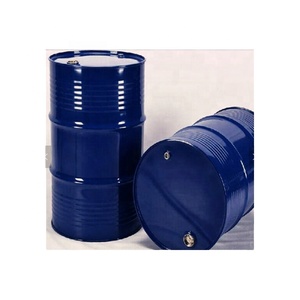Introduction to Ethyl Alcohol
Ethyl alcohol, also known as ethanol, is a versatile chemical compound widely used in various industries. Its significance extends beyond being a simple alcohol, as it plays a crucial role in everything from food production to pharmaceuticals. Ethyl alcohol is known for its efficacy as an antiseptic, solvent, and fuel. Understanding its properties, applications, and advantages can help businesses make informed decisions when incorporating it into their operations.
Types of Ethyl Alcohol
There are several forms of ethyl alcohol available, each serving specific needs and industries:
- Denatured Ethanol: This type of ethyl alcohol has additives to make it undrinkable, primarily used for industrial applications and cleaning solutions.
- Pure Ethanol: This is the unaltered form of ethyl alcohol, suitable for high-quality food and pharmaceutical applications.
- Hydrous Ethanol: A form that contains water, often used in the manufacture of alcoholic beverages and as a solvent.
- Anhydrous Ethanol: This is a dehydrated form of ethyl alcohol, increasingly popular as a biofuel and for pharmaceuticals due to its purity.
Applications of Ethyl Alcohol
The applications of ethyl alcohol are broad and diverse, impacting many sectors:
- Pharmaceuticals: Used as a solvent and preservative for medicines and as an antiseptic in various medical products.
- Food and Beverage: Essential in the production of alcoholic drinks and as a food preservative.
- Cosmetics and Personal Care: Utilized in perfumes, lotions, and sanitizers due to its antiseptic properties.
- Cleaning Products: A key ingredient in many disinfectants and cleaning agents for its ability to kill germs and bacteria.
- Fuel: Ethyl alcohol is increasingly used as a renewable fuel alternative, often blended with gasoline to create environmentally friendly fuels.
Advantages of Using Ethyl Alcohol
Incorporating ethyl alcohol into various applications brings numerous benefits:
- Effective Disinfectant: Ethyl alcohol is widely recognized for its germicidal properties, making it an essential component in hand sanitizers and medical disinfectants.
- Versatile Solvent: Its ability to dissolve a wide range of substances makes it invaluable in industries ranging from pharmaceuticals to cosmetics.
- Easy to Produce: Ethanol can be derived from renewable resources, such as corn and sugarcane, contributing to sustainability in manufacturing processes.
- Regulatory Approval: Ethyl alcohol is generally regarded as safe (GRAS) by the FDA for use in food and pharmaceutical applications, provided it meets appropriate standards.
- Eco-Friendly Fuel Options: As a renewable energy source, using ethyl alcohol as fuel helps reduce carbon emissions compared to traditional fossil fuels.




























































































































































































































































 浙公网安备 33010002000092号
浙公网安备 33010002000092号 浙B2-20120091-4
浙B2-20120091-4